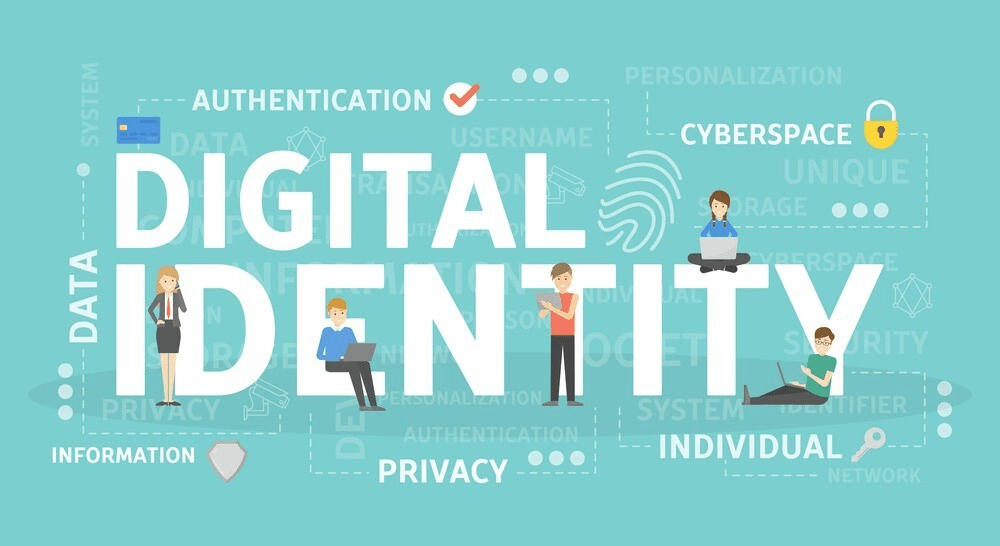In the digital age, where things change quickly, the concept of identity has gone beyond its usual limits. Digital IDs have become more important in terms of security, privacy, and trust as our lives are more connected to digital platforms and technologies.
Online exchanges and deals, from social media to making purchases, are built around digital IDs. In the digital world, they are like digital versions of ourselves that hold much personal information.
Managing digital identity has become more challenging as online risks and data breaches are becoming more common. When it comes to advanced cyberattacks, the old ways of verifying identities that depend on centralized systems and are open to single points of failure need to be fixed.
For more security and online safety, blockchain and digital identity have come into the online world to handle and protect from breaches.
What is blockchain, and is it the key to securing digital identities? In this post, we’ll explore these questions. Join us to find out how blockchain could change the very nature of trust in a world that is becoming increasingly linked.
Understanding Digital Identities

Did you know that digital identities serve as virtual reflections of ourselves? But what are digital identities, and why are they so important in the online world?
- Defining Digital Identities
Digital identities are essentially the online representations of individuals, encapsulating a plethora of personal information, preferences, behaviors, and interactions across various digital platforms and services. They are the digital footprints we leave behind as we navigate the internet, encompassing everything from social media profiles and email addresses to financial accounts and online shopping histories.
The significance of blockchain and digital identities in today’s interconnected world cannot be overstated. They are the linchpins of our online presence, shaping how we engage with others, conduct transactions, and access services in the digital landscape. Our digital identities serve as the gateways through which we navigate and interact with the vast Internet ecosystem.
- Challenges with Traditional Identity Management Systems
Even though they are essential, handling digital identities takes work, especially when using traditional identity management tools.
One of the main problems with standard identity management systems is that they store and verify user information in centralized databases. Cybercriminals love these central databases of private information because they have a single point of failure where hackers and data breaches can happen.
Many well-known events, like data breaches at prominent businesses and government agencies, have shown that these kinds of leaks can have terrible effects, including identity theft, financial loss, and a loss of privacy.
In addition, expert cybercriminals are finding it more accessible to break standard login methods like passwords and security questions. Because of common data breaches and the ease of obtaining personal information through social engineering, using only these traditional methods of authentication comes with many security risks.
The Promise of Blockchain for Digital Identities

Blockchain technology has been making waves across various industries, but its potential impact on digital identity management is particularly promising. Let’s look at how digital transformation companies could revolutionize how we secure and manage our digital identities.
- Secure and Decentralized Framework
Blockchain offers a secure and decentralized framework for storing and managing digital identities. Unlike traditional centralized systems, where all our personal information is stored in one place, blockchain spreads this information across a network of computers, making it harder for hackers to access and tamper with.
- Improved Security, Privacy, and Control
One of the most significant advantages of blockchain companies for digital identities is the enhanced security, privacy, and control it offers. Blockchain offers greater control over personal data. They can choose what information to share and with whom without relying on third-party intermediaries.
Blockchain developers also ensure that once your information is recorded, it cannot be altered or tampered with. This means you can trust that your digital identity remains secure and unchanged.
- Empowering Individuals
By empowering individuals to control their digital identities, blockchain empowers us to manage our identities autonomously. We no longer rely on centralized authorities or third-party platforms to verify our identity. Instead, we can take ownership of our data with the help of digital transformation companies and decide how it’s used and shared.
This shift towards self-sovereign identity gives us greater freedom and autonomy in the digital world. It puts us in the driver’s seat when managing our personal information and enhancing trust and transparency in our online interactions.
Use Cases and Implementations

A blockchain development company has sparked a revolution in digital identity management, offering innovative solutions to address the challenges of security and privacy. Let’s explore some real-world examples of how blockchain is offering security to digital identities.
- Self-Sovereign Identity Platforms
Self-sovereign identity platforms leverage blockchain to empower individuals with complete control over their digital identities. One prominent example is Sovrin, a global public utility for self-sovereign identity. Sovrin allows individuals to independently create and manage their digital identities, eliminating the need for centralized authorities or intermediaries. With Sovrin, users can securely store and share their personal information while maintaining privacy and control.
- Decentralized Identity Verification
Blockchain companies enable decentralized identity verification systems that enhance security and trust in online interactions. Civic is a prime illustration of such a system, offering a decentralized identity verification platform powered by blockchain technology. Civic allows users to verify their identities securely and instantly without exposing sensitive information. By leveraging blockchain, Civic ensures that identity verification processes are tamper-proof and resistant to fraud.
- Digital Credentialing Systems
Blockchain-based digital credentialing systems are revolutionizing how academic and professional qualifications are verified and authenticated. For instance, Blockcerts is an open standard for developing, issuing, and verifying digital certificates using blockchain technology. With Blockcerts, educational institutions and employers can issue tamper-proof digital credentials that are easily verifiable by anyone anywhere.
Challenges and Considerations

While digital transformation companies offer promising solutions for securing digital identities, it’s essential to acknowledge blockchain-based identity systems’ challenges and limitations. Let’s explore into some of these challenges and discuss potential solutions and ongoing efforts to address them.
Limitations and Challenges
1. Scalability Issues: One of the primary challenges facing blockchain and digital identity systems is scalability. As the number of users and transactions on a blockchain network grows, so does the strain on the network’s capacity to process and validate transactions. This can lead to slow transaction times and increased costs, hindering the scalability of blockchain and digital identity solutions.
2. Interoperability Concerns: Interoperability—the ability of different blockchain networks to communicate and interact—is another significant consideration. With numerous blockchain platforms and protocols, achieving seamless interoperability poses a considerable challenge. Users may face difficulties accessing and managing their digital identities across different blockchain networks without interoperability standards.
3. Regulatory Hurdles: Blockchain-based identity systems also face regulatory hurdles as governments and regulatory bodies grapple with legal and compliance implications of decentralized identity solutions. Regulatory uncertainty surrounding data privacy, security, and jurisdictional issues can create barriers to adoption and implementation, slowing down the progress of blockchain-based identity initiatives.
Potential Solutions and Ongoing Efforts

Despite these challenges, blockchain companies are enforcing ongoing efforts to address them and improve the efficacy of blockchain-based identity systems.
Scalability Solutions: To overcome scalability issues, blockchain developers are exploring various solutions, such as layer 2 protocols like Lightning Network and sidechains, which enable off-chain transactions to relieve congestion on the main blockchain. Additionally, advancements in blockchain technology, such as sharding and consensus mechanisms like proof of stake, aim to improve the scalability of blockchain networks without compromising security.
Interoperability Standards: Efforts are underway to develop interoperability standards enabling seamless communication between blockchain networks. Organizations like the InterWork Alliance and the World Wide Web Consortium (W3C) are working on defining protocols and standards for cross-chain communication and data exchange, fostering interoperability among disparate blockchain platforms.
Regulatory Frameworks: To navigate regulatory hurdles, industry stakeholders engage with policymakers and regulatory bodies to develop clear and coherent frameworks for blockchain-based identity systems. Collaborative initiatives between governments, industry players, and advocacy groups aim to address legal and compliance challenges while promoting innovation and consumer protection in the digital identity.
The Future Outlook

Let’s explore the future trajectory of blockchain-based digital identities and speculate on their potential impact on individuals, businesses, and society.
The Future Trajectory of Blockchain-based Digital Identities
Advancements in Technology: The future of blockchain-based digital identities holds exciting possibilities fueled by technological advancements. With ongoing research and development, we expect to see improvements in blockchain networks’ scalability, interoperability, and usability.
Regulatory Developments: Regulatory developments will play a massive role in shaping the future of blockchain-based digital identities. As governments and regulatory bodies grapple with the complexities of decentralized identity systems, we anticipate the emergence of clear and coherent regulatory frameworks. These frameworks will guide data privacy, security standards, and compliance requirements, fostering a conducive environment for the widespread adoption of blockchain-based identity solutions.
Evolving User Expectations: User expectations are evolving rapidly, driven by growing concerns about data privacy and security breaches. In the future, individuals will demand greater control over their data and expect seamless and secure digital identity experiences. Competent contract developers will promise self-sovereign managing digital identity, empowering users with autonomy and control over their digital identities, aligning with these evolving user expectations.
Reshaping the Digital Identity Landscape: A blockchain development company has the potential to profoundly reshape the digital identity landscape. Blockchain-based digital identities enable new use cases and business models, such as decentralized finance (DeFi), identity-based payments, and decentralized autonomous organizations (DAOs), fostering innovation and inclusion in the digital economy.
Implications for Individuals, Businesses, and Society

The implications of blockchain-based digital identities extend far beyond individual users and businesses—they have the power to transform society as a whole. Individuals will regain sovereignty over their data, fostering trust and transparency in online interactions. Companies will benefit from reduced fraud and compliance costs while unlocking new opportunities for innovation and growth. Moreover, digital transformation companies have the potential to address systemic issues such as digital exclusion and identity fraud, promoting financial inclusion and social equity.
Conclusion
At the start of this blog, we raised the question “Is Blockchain the Key to Secure Digital Identities?” we’ve delved into the potential of blockchain technology to revolutionize the landscape of digital identity management. Here’s a brief recap of the key highlights we’ve covered:
- Significance of Digital Identities: Digital identities play a pivotal role in our online interactions and transactions, serving as the foundation of trust in the digital realm.
- Promise of Blockchain: Blockchain offers a secure, decentralized framework for storing and managing digital identities, enhancing security, privacy, and control over personal data.
- Use Cases and Implementations: Real-world applications of blockchain for digital identity solutions include self-sovereign identity platforms, decentralized identity verification, and digital credentialing systems.
- Challenges and Considerations: Despite its potential, blockchain-based identity systems face scalability issues, interoperability concerns, and regulatory hurdles.
- Future Outlook: Looking ahead, advancements in technology, regulatory developments, and evolving user expectations are expected to shape the trajectory of blockchain-based digital identities. Blockchain can reshape the digital identity landscape, empowering individuals, businesses, and society with greater security, privacy, and control over their digital identities.
In conclusion, while blockchain holds immense promise as a key solution for securing digital identities, addressing the challenges and considerations along the way is crucial. With continued innovation, collaboration, and adaptation, blockchain’s smart contract developers have the potential to unlock a future where digital identities are secure, decentralized, and empowering for all.
Unlock the Future: Secure Your Identity Today with Blockchain Technology!
Contact Us Today
